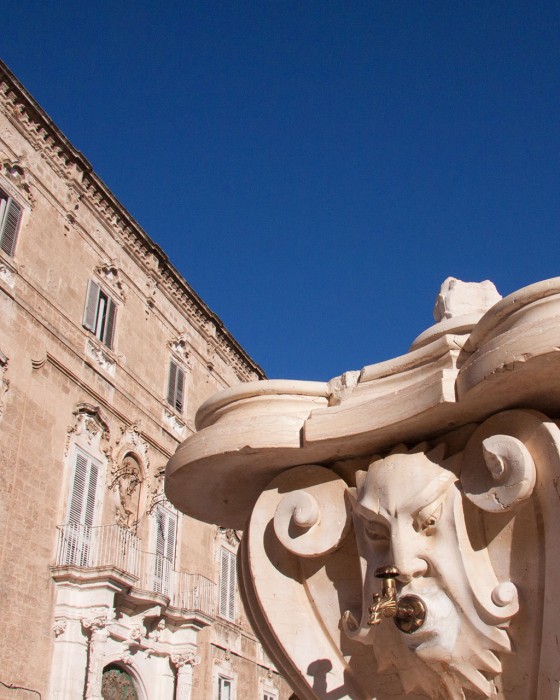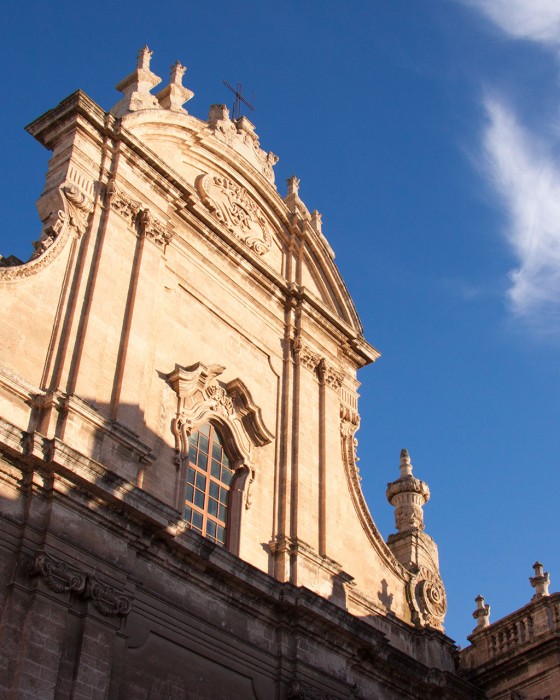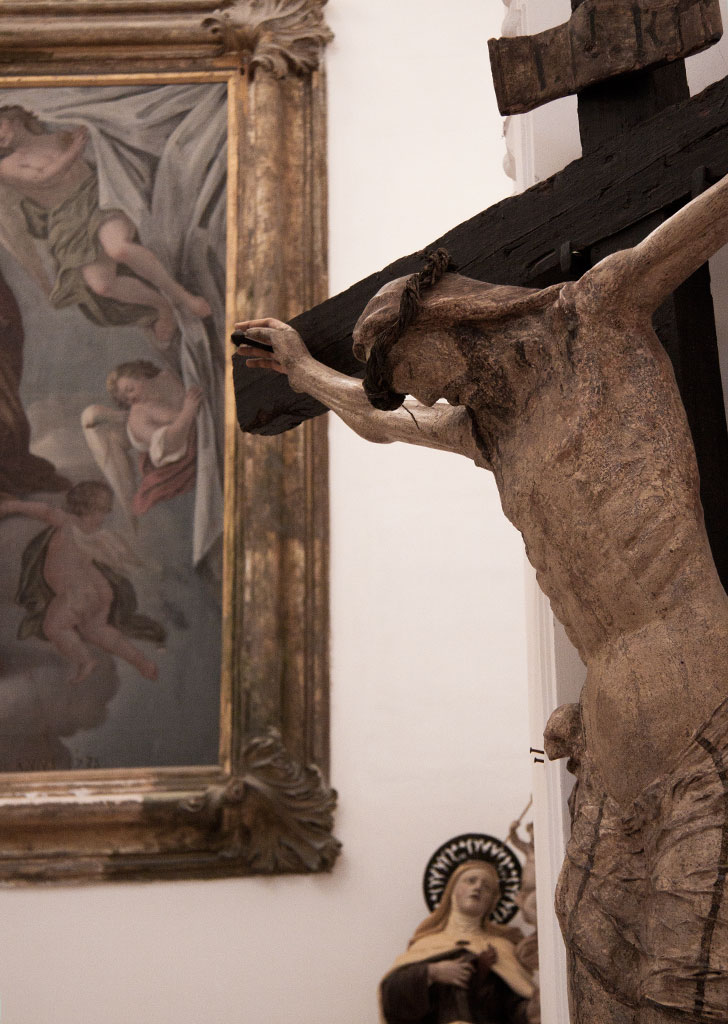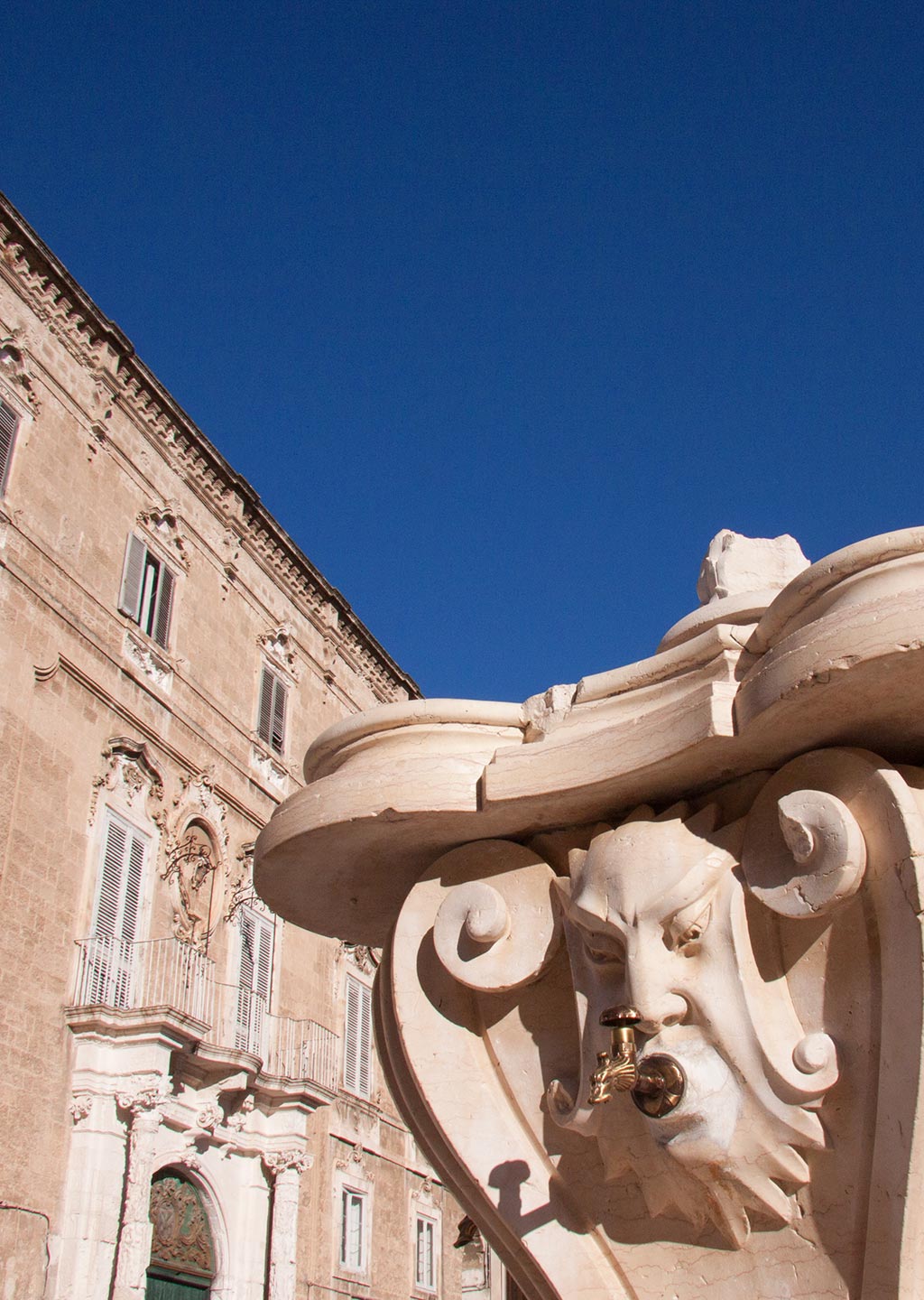The old town
The initial bewilderment at the extent of the old town is soon replaced by the pleasing sight of ancient squares, noble palaces and whitewashed houses. This is the “Paese vecchio” as the Monopolitans usually call it. Precisely here one notices a high concentration of cultural heritage and churches, the latter almost one next to another. Among narrow streets paved in ‘chianche’, between arches and alleys, it hints at sea air and smells that blend with the scents of freshly hung laundry or meatballs and sauce cooked for hours wafting from the typical green shutters that are almost always open. These homes at one time inhabited uniquely by fishermen, whose children and grandchildren we meet here and there, still intent on mending their nets.
It is the charming atmosphere of a living, seafaring culture that unveils, above all as evening falls when the fishing fleet arrives in port. Between screams and exciting hustle and bustle, scents and colours animates a microcosm that encapsulates the authentic values of a Mediterranean and Eastern tradition. In the small bay of the ancient natural port still shelter the typical local boats (u vozz), made entirely from wood, in their characteristic light blue and red colors. Monopoli is city born of the sea and one that lives from the sea. Its “old town” represents a strong charm due to the presence of the many restaurants and taverns, where you can taste a wide range of fish dishes. No shortage of taverns and trendy bars that attract young people especially during the long summer evenings. But along with these places it is not difficult to still stumble across small rooms of chatting fishermen, artisan workshops or small grocers’ shops, which are able to withstand the pressure of the large supermarkets. In a densely populated old town everything must be within reach of one’s front door





